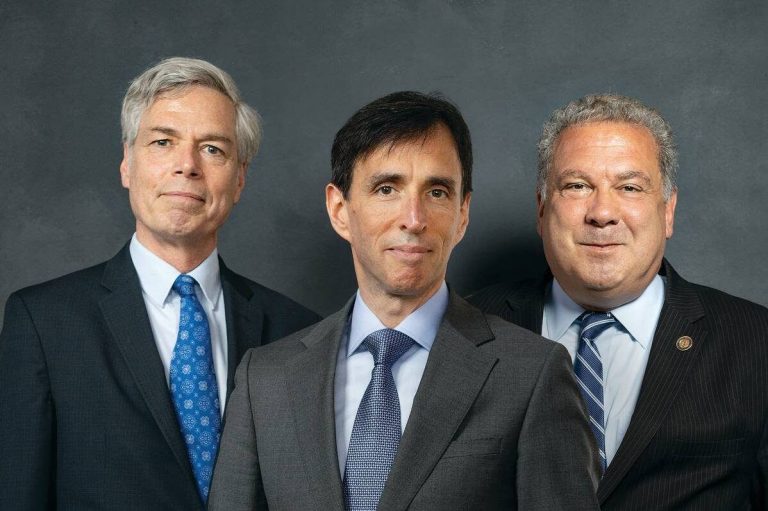Meet the movers and shakers whose influence as emerging leaders is resonating across Westchester — and beyond.
By Paul Adler, Janine Clements, Amy R. Partridge, Duke Ratliff, and Kevin Zawacki
Not all of these changemakers are household names just yet, but they are part of a new guard of emerging leaders who are shaking up the power structure in Westchester. Coming into their own over the past several years — or recently raising the stakes on an already-solidified reputation of power — they have been racking up contributions and accomplishments that are being seen and felt across the county. While certainly not an exhaustive list of all the newer VIPs around town, these are some of the interesting and dynamic men and women we’re avidly watching.
– Government –
Spotlight:
Noam Bramson
Mayor of New Rochelle
Tom Roach
Mayor of White Plains
Mike Spano
Mayor of Yonkers
Three of Westchester’s biggest cities are rapidly evolving as vibrant urban hubs under the strong leadership and vision of their chief executives. The mayors of Yonkers, New Rochelle, and White Plains are focused on priorities that include economic development, revitalizing the downtowns, promoting sustainability, modernizing infrastructure, and changing the way people think about their cities.
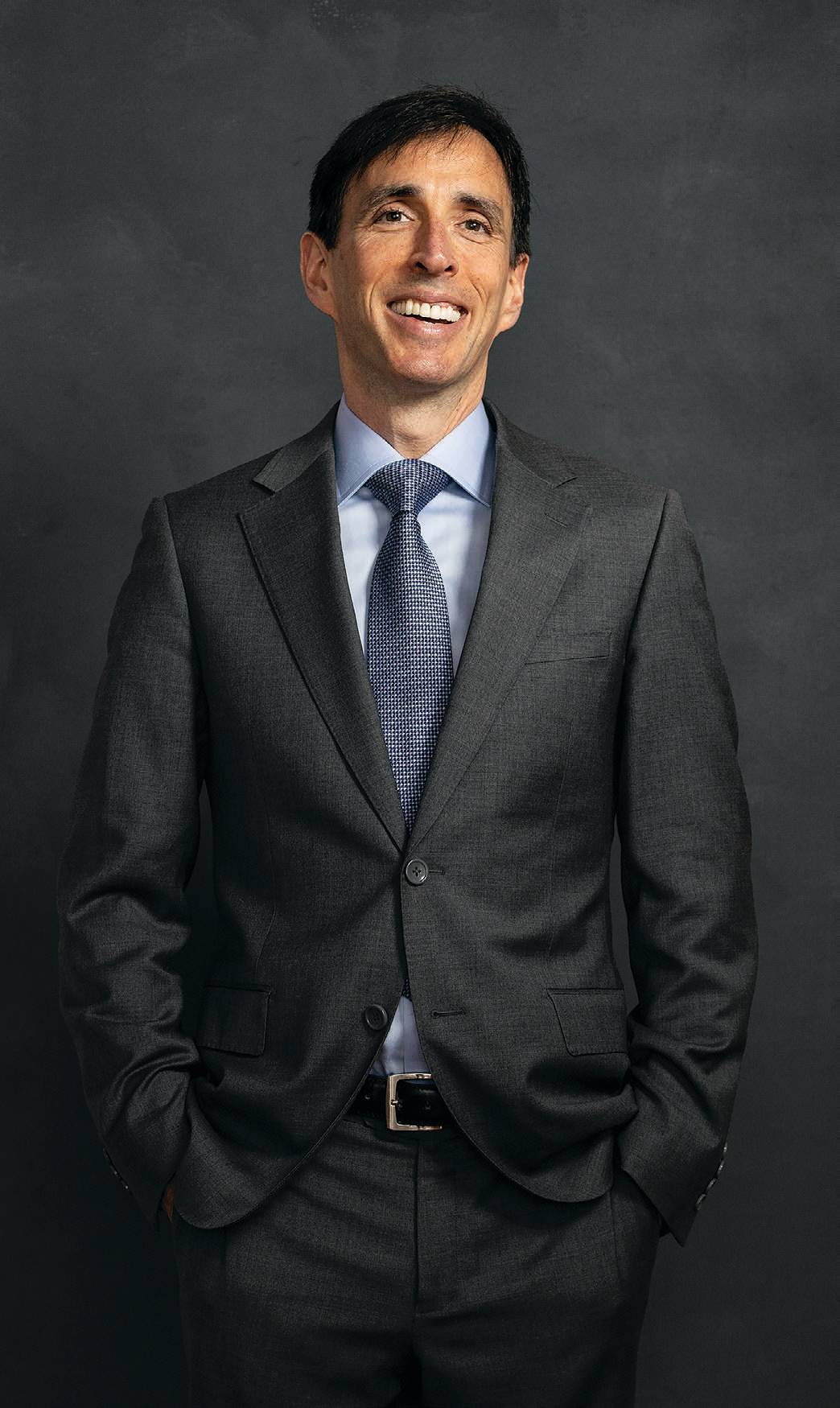
Noam Bramson. Photo by Stefan Radtke
Ten years ago, “there was much promise of development but little happening,” says Mayor Mike Spano of Yonkers. “Now we have several thousand housing units and new hotels being built, and we passed the city’s first affordable-housing ordinance.” Yonkers is also attracting companies such as Target, FedEx, and MGM. It is one of the safest large cities in the U.S., according to FBI data, and the public-school graduation rate has risen from 72% to 90% under Spano, with plans to build three schools.
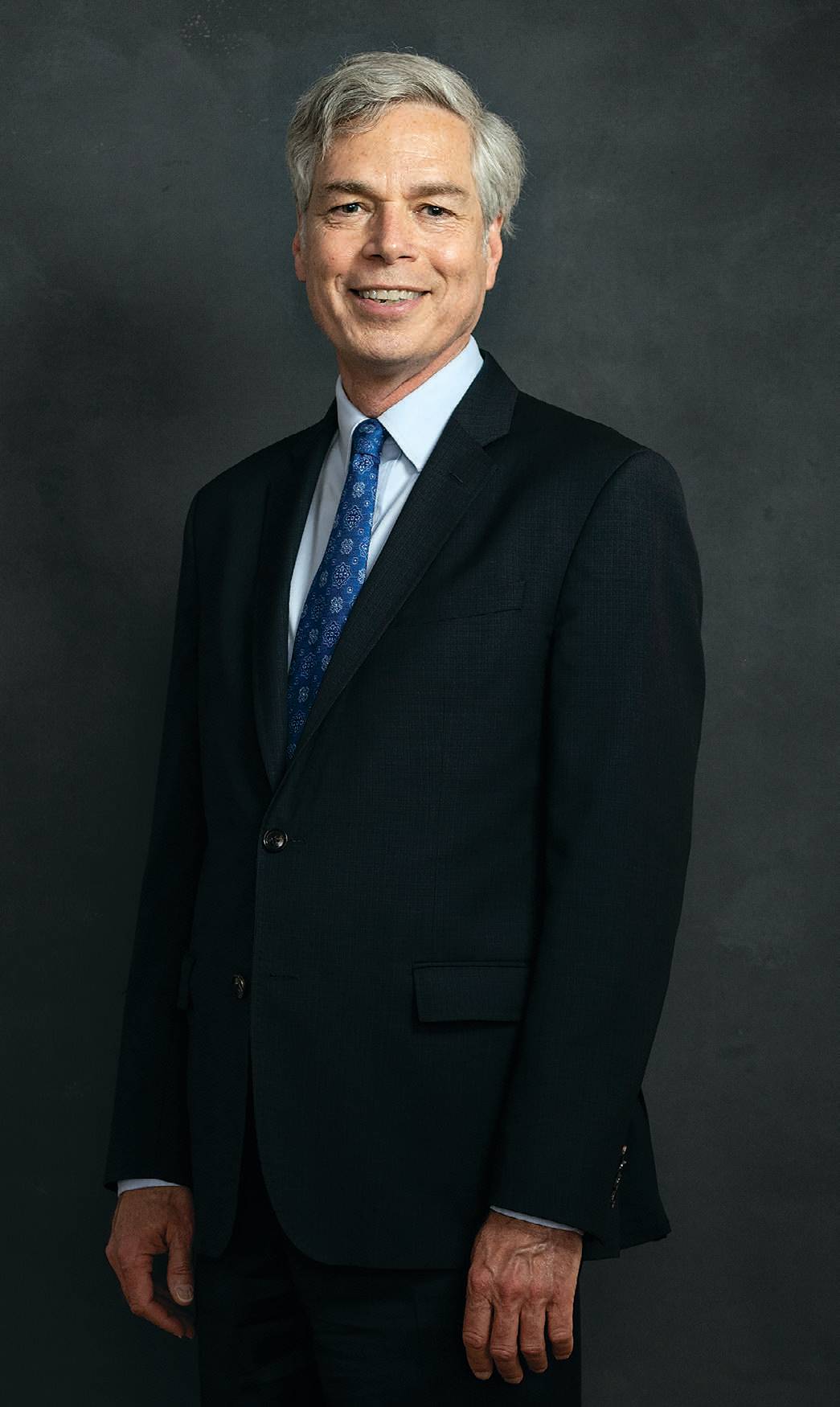
Tom Roach. Photo by Stefan Radtke
In New Rochelle, Mayor Noam Bramson is overseeing the city’s expansive downtown development plan, which was made possible by zoning changes, a fast-track permit-approval process, and a multibillion-dollar investment, among other factors. Expect to see brand-new residential towers in addition to a new family court and retail space. “We also have a 10-year capital plan directing more than $100 million to upgrade public infrastructure, such as parks, playgrounds, and roads,” says Bramson.
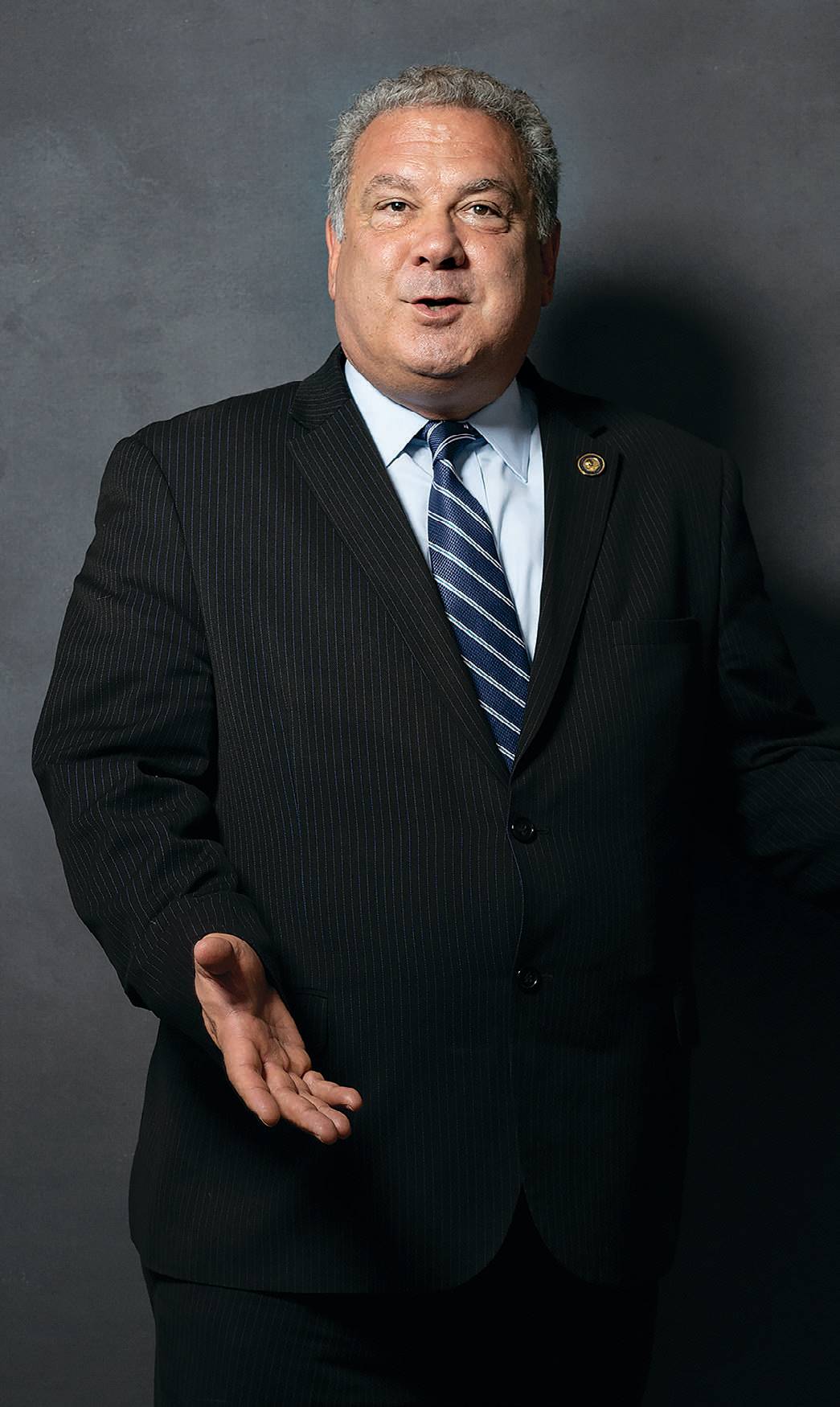
Mike Spano. Photo by Stefan Radtke
“We’re continuing to modernize and revitalize Downtown White Plains, adding housing, expanding the hospital, and redeveloping two malls,” says Mayor Tom Roach of his city’s plans. “We also have the county’s most progressive affordable-housing program.”
Sustainability is also high on the agenda for this trio of mayors. “New Rochelle has seen multiple energy-efficiency improvements and provides 100% clean energy to electricity consumers through Sustainable Westchester,” Bramson says. “Our downtown development is less car-dependent.”
Shaking Up County Politics
Westchester County’s political climate is changing, with a marked shift toward more progressive politics, a focus on economic development, increased diversity among elected officials, and new faces pushing for change. Several elected officials are coming up through the ranks, raising their profiles and shaking things up, thanks to their policies and vision.
Among these is Westchester’s new DA, Mimi Rocah. Since being elected, the former federal prosecutor has built a team reflecting the community’s diversity and is bringing reforms with her transparency and ethics plans. Her other priorities include reducing gun violence, creating a fairer criminal justice system, and addressing police misconduct.
Also raising the bar since his election victory in 2017 is County Executive George Latimer, whose mix of left-leaning social policies and savvy business and economic strategies has made him a near shoe-in for reelection in 2022. Shining the spotlight in his office is Bridget Gibbons, the county’s economic development director. Gibbons plays an instrumental role in establishing programs to help strengthen the business community. These include Business FIRST, a grant program providing $10 million in funding to help small businesses and nonprofits impacted by the pandemic, and Element 46, an incubator program to support startups.
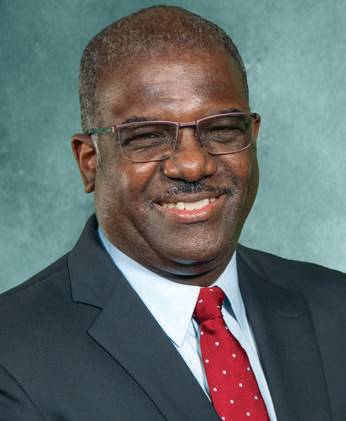
Ken Jenkins. Photo courtesy of Westchester County Executive Office
Deputy County Executive Ken Jenkins made history as the county’s first African American to hold that office. Although he has been a figure in local politics for a while, becoming part of Latimer’s senior management team has raised his profile considerably. He plays a key role tackling the issues facing Westchester and chairs the MWBE Task Force, addressing the needs of minority- and women-owned businesses.
Town Supervisor Matt Slater is shaking things up in Yorktown. He was pivotal in launching a zoning-and-marketing initiative to boost business and investment in the town, including the planned development of Yorktown Green Shopping Center. Slater pushed through an aggressive pandemic recovery agenda, and his recent budget includes a property-tax decrease without any cuts to services.
“White Plains has more electric-vehicle charging stations than any community in Westchester and will have the first electric garbage truck in the state,” says Roach. “Our Community Solar program will generate over $1 million a year and triple the amount of solar energy produced in the county.”
In Yonkers, a New York State-designated Climate Smart Community, water usage dropped 30%, thanks to the replacing of water meters. “We have Westchester’s largest green feet and were the first city in the state to launch the electric scooter program,” remarks Spano.
– Education –
Spotlight:
Eridania Camacho
Director of Workforce Programs, White Plains Education & Training Center, Westchester Community College
More than 17 million workers have been displaced by the pandemic in the U.S., and Eridania Camacho of Westchester Community College is at ground zero to assist local workers desperately in need of retraining. Previously the director for WCC’s Gateway to Entrepreneurship, when the pandemic first struck, her role and title changed as she shifted her focus to the White Plains Education & Training Center (WPETC), to expand WCC’s much-needed offerings in workforce training.
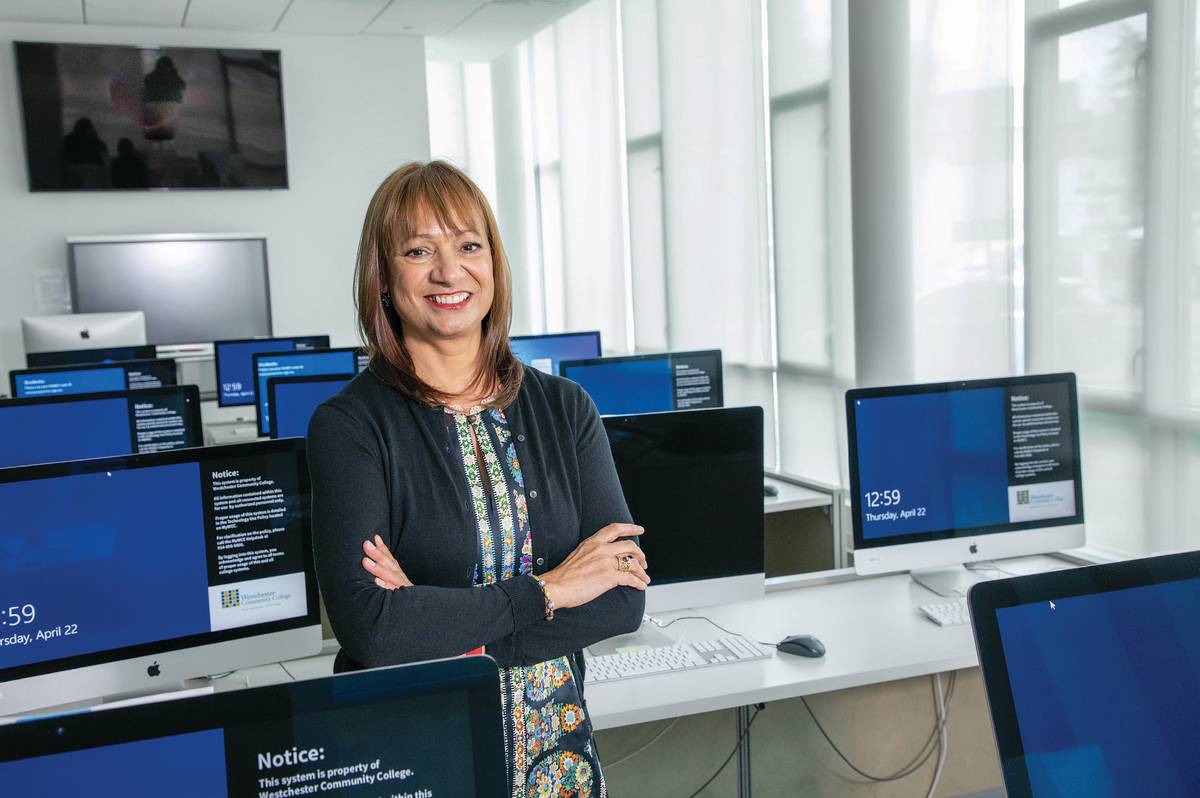
Eridania Camacho. Photo by Ken Gabrielsen
“More people are looking to sharpen their skills or gain new skills so that they can enter the workforce or shift to other industries.”
— Eridania Camacho
WPETC is a training hub where potential workers can learn skills in information technology and cybersecurity jobs. Classes are offered in areas such as digital literacy and IT competence.
“More people are looking to sharpen their skills or gain new skills so that they can enter the workforce or shift to other industries,” Camacho says. “I believe that when something like the pandemic happens, we are forced to step out of our comfort zones and explore new opportunities and different ways of approaching things. Being able to move beyond these challenges is an essential step toward growth.”
Moving Education Forward
Westchester County’s education leaders proved their resilience — and importance — through 2020. Belinda Miles, president of Westchester Community College, led the college through the pandemic as it prepared frontline healthcare workers, provided financial aid to students in need, and served as a vaccination site to inoculate county residents against the virus. This year, she’ll head WCC’s 75th-anniversary celebrations.
Since taking the reins in 2014, Mercy college president Tim Hall has guided the school to create academic initiatives, improve freshman retention, and renovate the infrastructure of its Dobbs Ferry, Manhattan, and Bronx campuses. He also used his authority to take in 1,800 displaced students from the defunct College of New Rochelle.
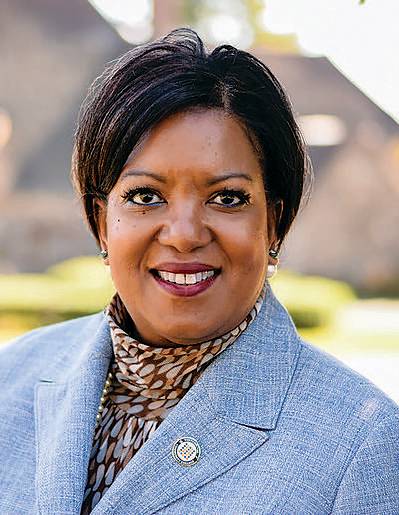
Belinda Miles. Photo courtesy of Westchester Community College
Milagros Peña was named the president of Purchase College last year. She was previously the dean of the college of humanities, arts, and social sciences at the University of California, Riverside, where she was known for attracting and retaining a diverse faculty. Peña is the first Hispanic woman ever to lead a SUNY institution.
As the superintendent of the White Plains City Schools, Joseph Ricca received kudos for his optimism and consistent communication as he helmed one of the county’s largest districts through the perils of the pandemic. Most recently, he’s been an outspoken advocate for federal aid, as he’s called for tax dollars earmarked for standardized test assessments to be transferred to the safe reopening of schools.
At the same time, Camacho’s strategy for entrepreneurship shifted from offering training to small-business owners to providing them with up-to-date information and access to resources and offering virtual informational sessions on how to access PPP loans.
“If you drive through any town in Westchester, its main street is lined with small businesses, not large corporations,” Camacho says. “These small businesses are the lifelines that sustain the community.”
– Business –
Spotlight:
Michael Romita
President & CEO, Westchester County Association
Westchester’s business community is confronting its biggest challenge in recent history: a grueling pandemic that’s slowed the economy to a crawl. That means Michael Romita — the new president/CEO of the Westchester County Association (WCA) — has a Herculean task ahead of him.
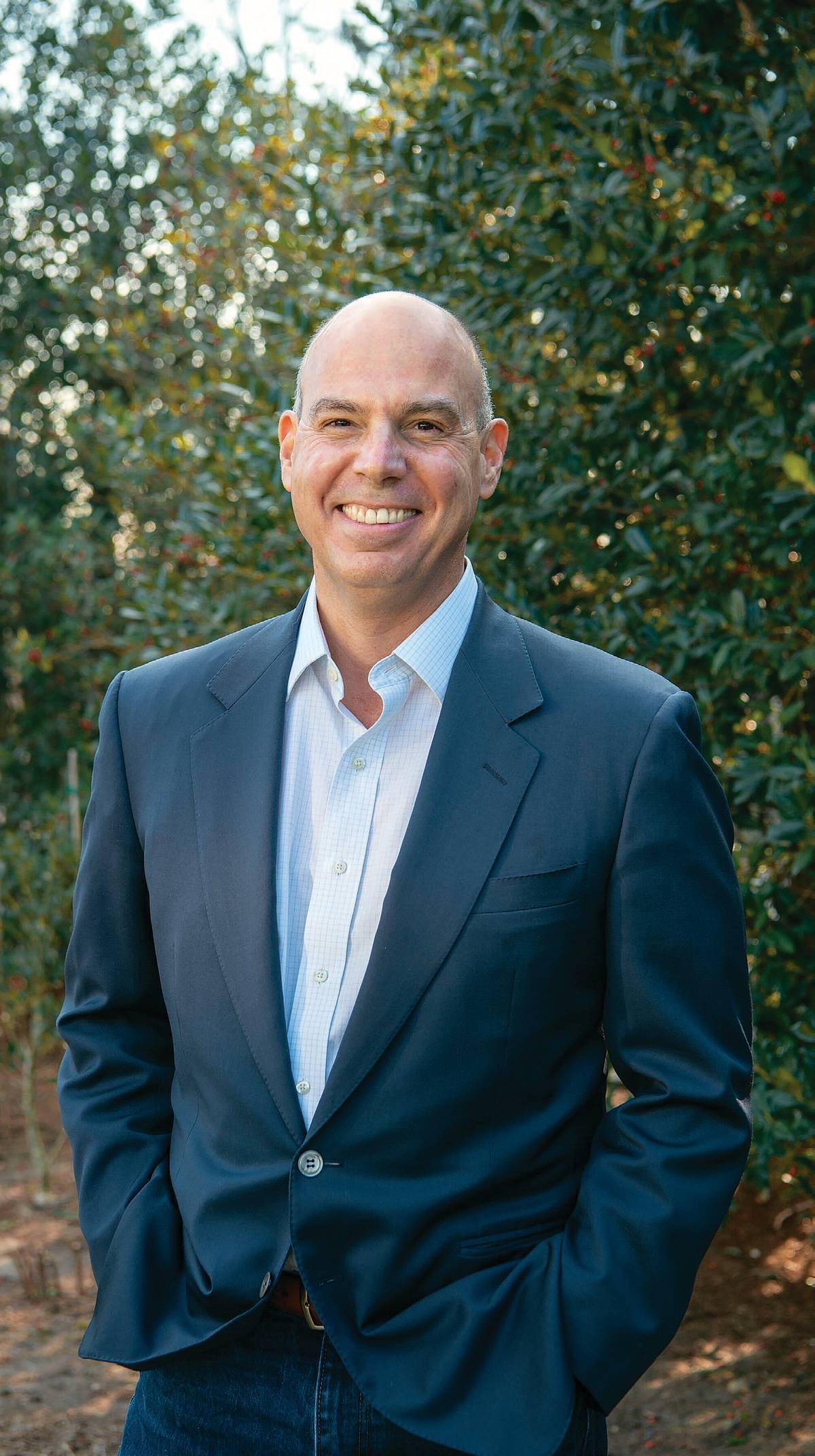
Michael Romita. Photo courtesy of Westchester County Association
For 70 years, the WCA has sparked economic development as an advocate for local business. That mission matters more than ever, with lingering shutdowns and virus rates taxing the region. Thankfully, Romita is especially qualified for his role. In past professional lives, he was a trial attorney for the Department of Justice, chief of a family-run oil company, and partner at a Washington, DC, public-policy firm. So, he innately understands the policies and aid Westchester businesses need right now.
In the past year, much of Romita’s energy has focused on getting funds to local merchants. “We recognized pretty early that the county had a very tight budget and that the state was spending [its] money fighting the pandemic,” Romita recalls. “So, we had to pivot our advocacy to the federal level.”
Romita is also helping fuel the region’s healthcare industry. “We’re developing a local pipeline of talent for the sector,” he says. “That’s going to be a growing need for our economy.” To do this, the WCA and Romita convened the Healthcare Talent Council, “a high-level roundtable with the heads of the hospitals and the deans and presidents of [local] colleges,” Romita explains. The council is ensuring local curricula aligns with local hospital needs and pushing for more clinical training. “You can’t have somebody come out of a [classroom] and throw them into a COVID emergency room,” Romita says.
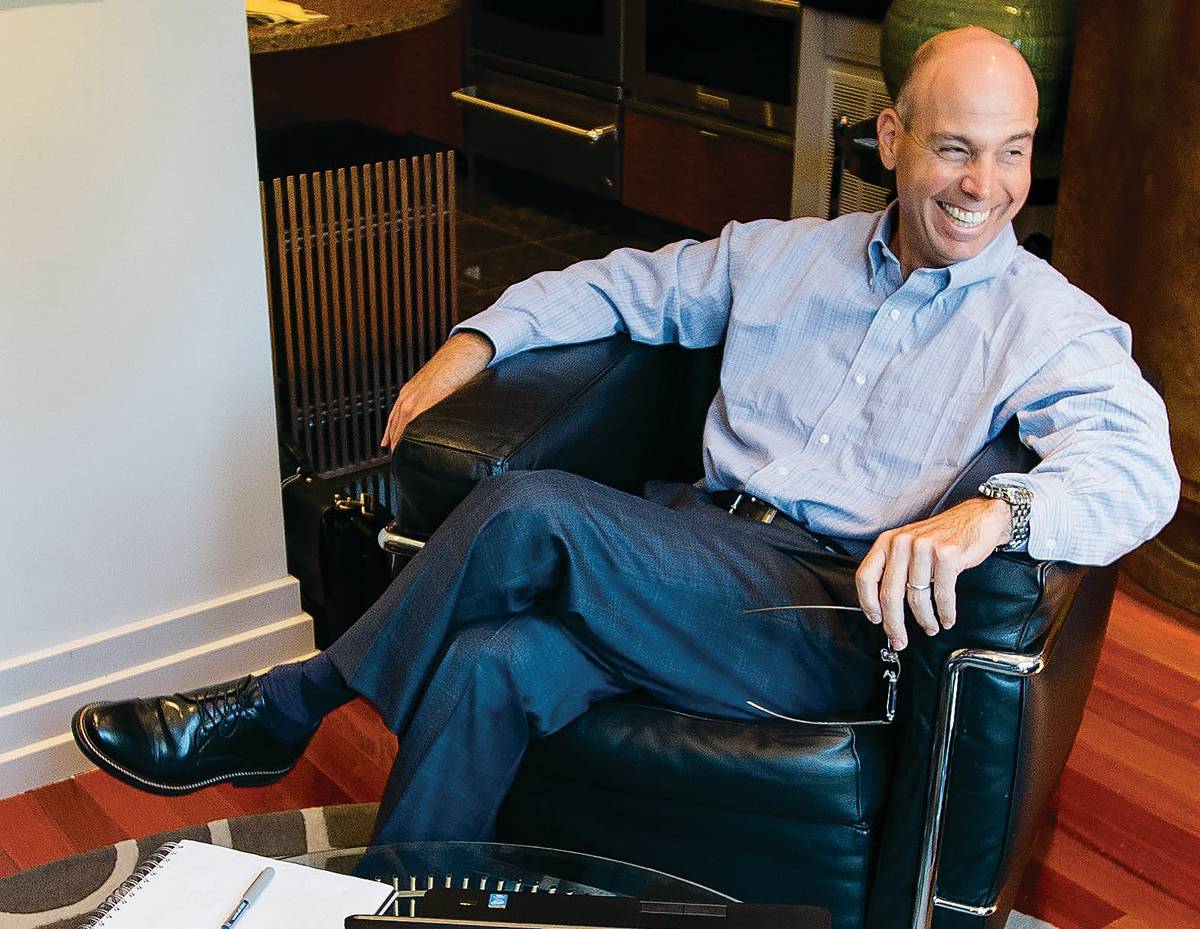
Photo courtesy of Westchester County Association
“We need to think more strategically about how our regional economy fits into the broader national conversation.”
— Michael Romita
Romita’s leadership isn’t all reactive, however. “It’s pretty easy to be distracted by every short-term issue,” he warns. “But we need to think more strategically about how our regional economy fits into the broader national conversation.” Romita’s long-term vision for the WCA entails revitalizing the county’s commercial office space, strengthening the regional healthcare sector, helping the transition to clean energy, growing affordable housing, and closing the digital divide.
It’s an ambitious to-do list, but Romita plans on leaning into Westchester’s strong suits. “Our socioeconomic diversity is one of our greatest strengths,” he says. “We’re professionally diverse. And we’ve got very dedicated, engaged businesses and nonprofits who really care about solving our problems.”
Business as Unusual…
Westchester business leaders have had a hectic 12 months, and inertia just isn’t an option when navigating a pandemic and the threat of economic collapse. As a result, some of the region’s biggest names have spent the past year innovating, adapting, and yes, even expanding.
Local biotech powerhouse Regeneron — led by founders Leonard S. Schleifer and George D. Yancopoulos — already made headlines for developing its COVID antibody cocktail. (Yes, the same one taken by former President Trump in November 2020.) More recently, Regeneron announced it would sell an additional 1.25 million doses of the cocktail — totaling as much as $2.6 billion — to the U.S. government. Meanwhile, Regeneron is planning to expand its Greenburgh campus with a 200,000 sq. ft. laboratory space.
As the region recovers from COVID’s economic toll, local banking will play an outsized role — so David DeMilia will be busy. DeMilia has been named the new president and CEO of Tompkins Mahopac Bank after his predecessor’s 26-year run. A lifelong Westchester resident with an impressive résumé, DeMilia most recently helped lead the bank’s commercial lending division. Says Tompkins board chairman Michael Spain: “Dave brings strong expertise and leadership in one of our core businesses, commercial banking.”
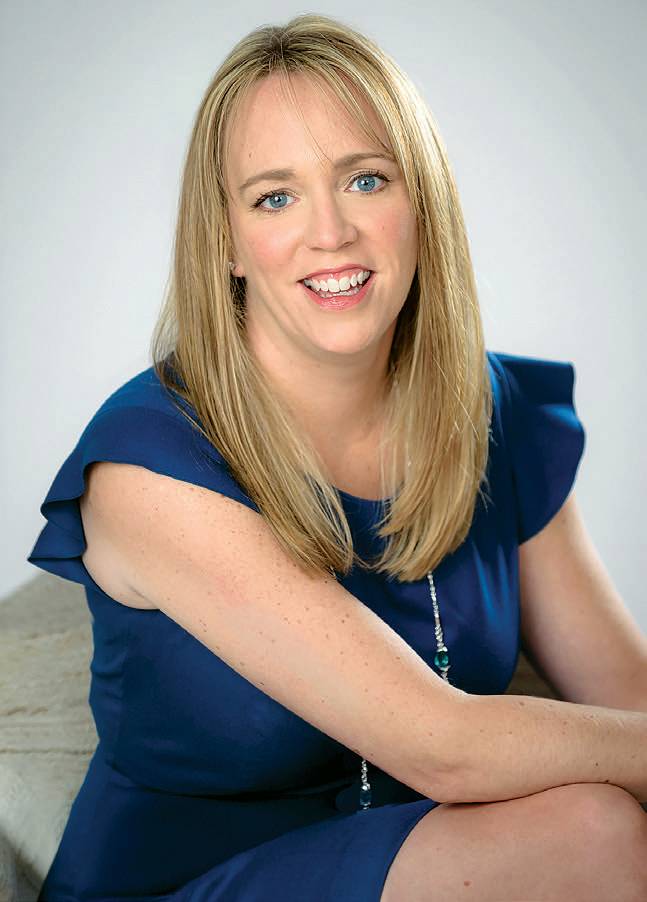
Heidi Davidson. Photo by John Vecchiola
Meanwhile, Heidi Davidson — who has chaired the Business Council of Westchester (BCW) since late 2019 — is shepherding the BCW through pandemic uncertainty. Davidson is helping the organization with initiatives like its recently formed Anti-Racism Resource Center and Economic Recovery Task Force while advocating a full gaming license for Empire City Casino in Yonkers.
Some of Westchester’s marquee-name corporations have also welcomed new faces. At IBM headquarters, in Armonk, Arvind Krishna began as CEO in April 2020 and added chairman to his title in January 2021. At PepsiCo’s Purchase headquarters, CEO Ramon Laguarta is just more than two years into his role. Meanwhile, at Heineken USA’s HQ in White Plains, CEO Maggie Timoney is also just two years into her role. As COVID continues, all three CEOs are expected to play an outsized role in how their companies — and industries — answer the call.
– Real Estate/Development –
Spotlight:
Louie Lanza
Owner, Hudson Hospitality Group
As an April Fool’s prank in 2019, Westchester Magazine published a tall tale that developer/restaurateur Louie Lanza had purchased the entire city of Peekskill. It hit so close to home that some readers thought it was fact — and others wistfully hoped the story was true.
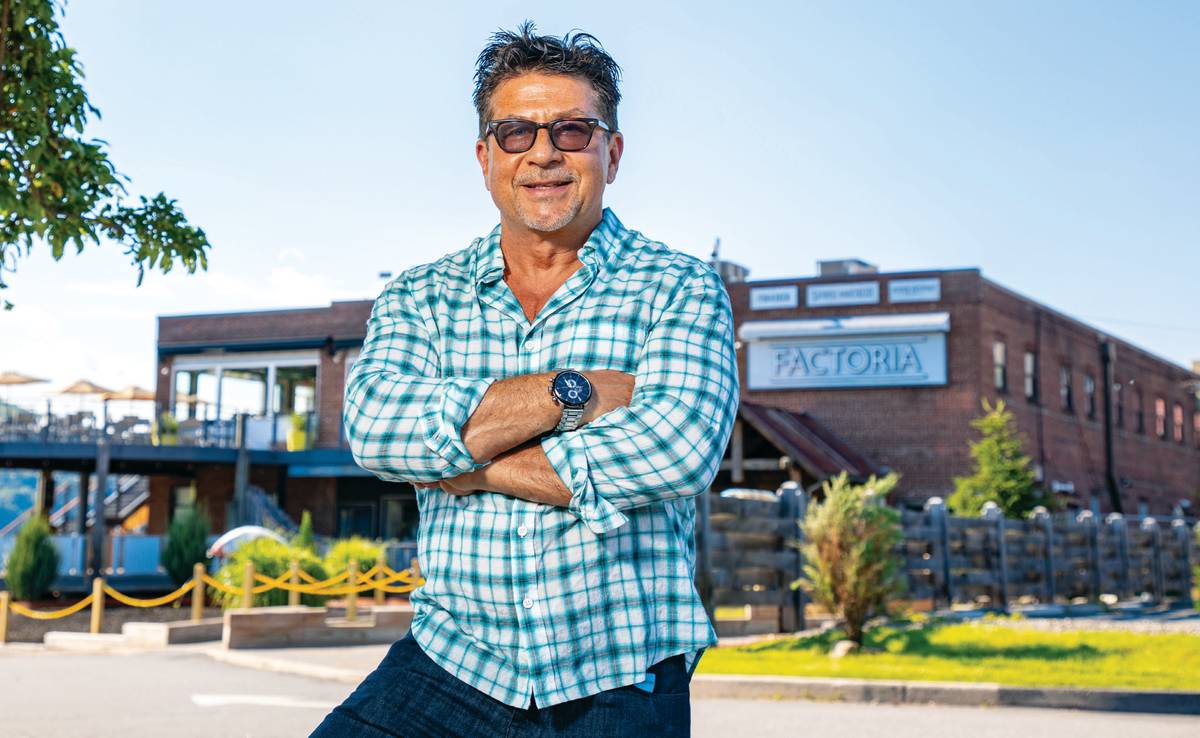
Louie Lanza. Photo by Ken Gabrielsen
Walk almost anywhere in Peekskill, and you’ll come face-to-face with a Lanza-owned property. His Hudson Room and Eagle Saloon both sit in the center of downtown, close to the tourist-attracting Paramount Theater. His restaurants Taco Dive Bar and Bajarito command attention at the city’s bustling waterfront. Lanza’s Factoria, with Fin & Brew and River Outpost Brewing, is a popular entertainment destination at Charles Point, while his Spins Hudson is the largest entertainment venue on the Hudson. Also, he owns three of the buildings on Peekskill’s busiest corner, at Division Street and Main Street.
Big Developments Ahead
Optimism prevails for Westchester County real estate, aided by some of the region’s most dynamic players. Whether they’re up-and-comers or established executives with decades of experience in taking on new roles, the leading real estate execs are making it happen in Westchester.
Easily one of the most prolific residential developers in the history of the Hudson Valley, Martin Ginsburg, founder and principal of Ginsburg Development Companies, continues to grow his influence, most recently by proposing to build a complex at the Peekskill train station, containing more than 160 apartments, retail space, and 40 hotel rooms. His company is also set to start leasing 1 Martine Ave, the residential element of the large City Square complex in White Plains. His Abbey Inn & Spa was recently voted the third-best new hotel in the nation by the readers of USA Today.
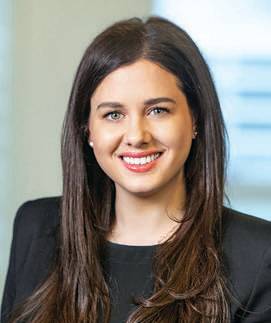
Patricia Simone. Photo courtesy of Thompson & Bender
With more than a decade of real estate development experience each, Patricia Simone and Joanna Simone continue to help steer Simone Development, which manages more than 5 million square feet of property. They both were recipients of the Hall of Fame Women in Business Success Award from the Business Council of Westchester last year.
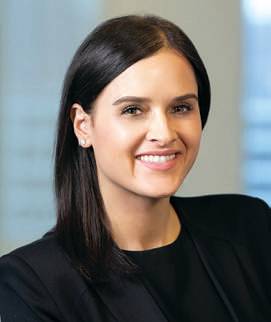
Joanna Simone. Photo courtesy of Thompson & Bender
Andrew Weisz is the up-and-coming executive vice president of RPW Group. Last year, the company teamed with The NRP Group to break ground on a 70-acre mixed-use property in White Plains that once housed the global headquarters of IBM.
David Richman took the lead at Rakow Commercial Realty Group in 2019. The company has represented tenants, buyers, owners, and sellers of commercial real estate services for more than 20 years. Rakow recently expanded to a new office in Bergen County, NJ.
Earlier this year, RXR Realty, headed by CEO Scott Rechler, finished building the structure for One Clinton Park, a 28-story mixed-use building in New Rochelle. The city’s official “master developer” since 2015, RXR recently donated $1 million to assist residents during the pandemic.
Liz Nunan took the reins at Houlihan Lawrence last year, after being named president just a year earlier and COO in 2018. The company navigated through the pandemic with a wealth of proprietary data to help understand the changes in consumer attitudes and intentions.
Tim Foley was promoted to CEO of the Building Realty Institute in 2020. The Harvard grad served as a media director for President Obama in 2008. —DR
For the dynamic Lanza, the pandemic brought a time of refection and planning. It was a time to ponder projects and new partnerships. “The hospitality business has suffered tremendously in the last year,” Lanza says. “At some point, you have to take the lemons and make lemonade.”
Early on in the pandemic, Lanza cofounded the Million Gallons Challenge, which provided soup for colleagues and other food-insecure members of the community. Chefs and restaurateurs, along with restaurant and hospitality workers, used vacant space and leftover food and ingredients toward the cause.
Lanza describes himself as “a team player,” and the pandemic has helped him appreciate partnerships even more than ever. “There’s a lot of incredibly brilliant people around, and if you can partner with the right people, you can do things together,” Lanza says. “Nobody can do it by themselves.”
Lanza says he’s in the final stages of making a deal with a tech company to move into one of his buildings downtown, which will eventually lead to nearly 100 professional employees working in Peekskill. And since cannabis has been legalized for recreational use in New York, Lanza has fielded numerous phone calls from would-be partners about the burgeoning industry. “I have some research to do,” he says.
– Healthcare –
Spotlight:
Susan Fox
CEO, White Plains Hospital
Since taking over as CEO in 2015, Susan Fox has led White Plains Hospital on a nonstop trajectory of action. Notable projects launched or completed during Fox’s tenure include the hospital’s revamped lobby and inpatient tower; a $50 million expansion of the Center for Cancer Care; its off-site Ambulatory Surgery Center, opened in Harrison last fall; a new Pediatric Center; and the hospital’s soon-to-open 250,000 sq. ft. Center for Advanced Medicine and Surgery. In addition, Fox oversaw White Plains Hospital’s transition to becoming a member of the Montefiore Health System.

Susan Fox. Photo by Ken Gabrielsen, courtesy of White Plains Hospital
The hospital has also received numerous honors under Fox’s leadership, including recognition from Magnet for excellence in nursing and from Leapfrog for patient safety, as well as consistently ranking in the top 10% nationally for outstanding patient experience by Healthgrades.
For Fox, who started her career as a pediatric ICU nurse, all these advancements and kudos come back to one thing: patient care. “I am guided by the privilege of being able to care for people,” she says. “Every decision made is centered around our patients, knowing they deserve the highest-quality compassionate care available.”
In the past year, Fox’s leadership was tested like never before, as the hospital — which operates the busiest emergency department in Westchester — cared for thousands of COVID-19 patients. “There was no playbook for how to manage this crisis,” she says, adding that the hospital staff came to work each day guided by an important mission: “We knew that so many people were relying on us for not just healthcare but also to be a source of information and leadership — both inside and outside of the hospital.”
Looking ahead, Fox is focused on continuing the hospital’s streak of elevation and transformation. “Whether it was being here to lead in this time of the pandemic or to bring advanced care to our community, it is humbling to have that responsibility, and I don’t want to waste a minute of the time I have to make a difference for so many.”
Charting The Next Course
Healthcare leaders here know that top-notch care, close to home, is what Westchester patients want. Working toward that goal over the last few years, these executives have helped position their institutions for forward momentum coming out of the pandemic.
Westchester’s two largest multi-specialty medical groups, CareMount Medical and Westmed Medical Group, are led by a pair of heavy hitters. Scott D. Hayworth, MD, CareMount’s president and CEO, has overseen a nearly 15-fold expansion in the size of CareMount during his tenure while cultivating expertise in healthcare’s transition to value-based care. Westmed CEO Anthony Viceroy, who has been forward-looking in such technological areas as tele-health and remote-patient monitoring, has helped ensure Westmed’s smooth transition to virtual patient care through the pandemic and beyond.
Since day one of the coronavirus outbreak in the U.S., Westchester County Health Commissioner Dr. Sherlita Amler has been a fixture on the front lines, working to help shape the county’s response to the crisis. Having served multiple administrations, from both major parties, Amler has held her role for nearly a decade, but her constant presence throughout the virus has further raised her profile.
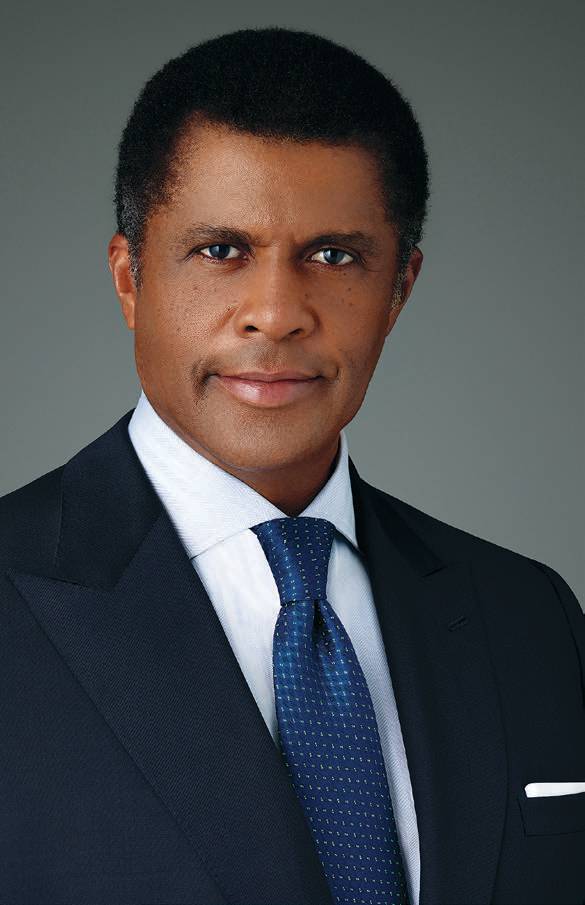
Dr. Philip O. Ozuah. Photo by Serge Neville
Not surprisingly, a whole host of power players can be found at Westchester’s top hospitals — many of them relatively new to their posts. The Westchester Medical Center Health Network has continued to grow as a major force in regional healthcare, with its new executive vice president and chief strategy officer, Joshua Ratner, playing a crucial role in supporting WMC Health Network President and CEO Michael Israel’s vision and ensuring the healthcare conglomerate’s clinical and corporate strategies are well aligned. Montefiore Health System’s growing influence in Westchester has put its new president and CEO, Dr. Philip O. Ozuah, squarely in the spotlight. Dr. Ozuah’s focus on helping underserved communities while overseeing Montefiore’s rapidly evolving network has won praise. The leaders at NewYork-Presbyterian’s top two Westchester hospitals have also taken center stage of late. President Stacey Petrower took the helm of NewYork-Presbyterian Hudson Valley Hospital in 2016 and most recently oversaw the opening of its state-of-the-art Maternal & Newborn Care Unit, while President Michael Fosina helped steer NewYork-Presbyterian Lawrence Hospital through the pandemic with a dual focus on effective patient care and ensuring the hospital’s financial viability. Meanwhile, at Phelps Hospital Northwell Health, newly appointed executive director Eileen Egan is leading the acute-care community hospital’s clinical and technological advancements after a 17-year nursing career and a series of escalating administrative positions.
Arts & Entertainment
Spotlight:
Ed Domingo
President & COO, Empire City Casino by MGM Resorts
With nearly 15 years of industry experience at gaming icons like Las Vegas’ glitzy Bellagio, Empire City Casino seemed like an unlikely next stop for Ed Domingo’s rising star. “A lot of people thought I was crazy to leave Bellagio to move to Yonkers, but it was a really easy choice for me,” explains Domingo, who became president and COO of Empire in January 2020.
“I was really excited to have the chance to move back, especially in the context of casinos, since I understood how powerful this market could be,” he shares.
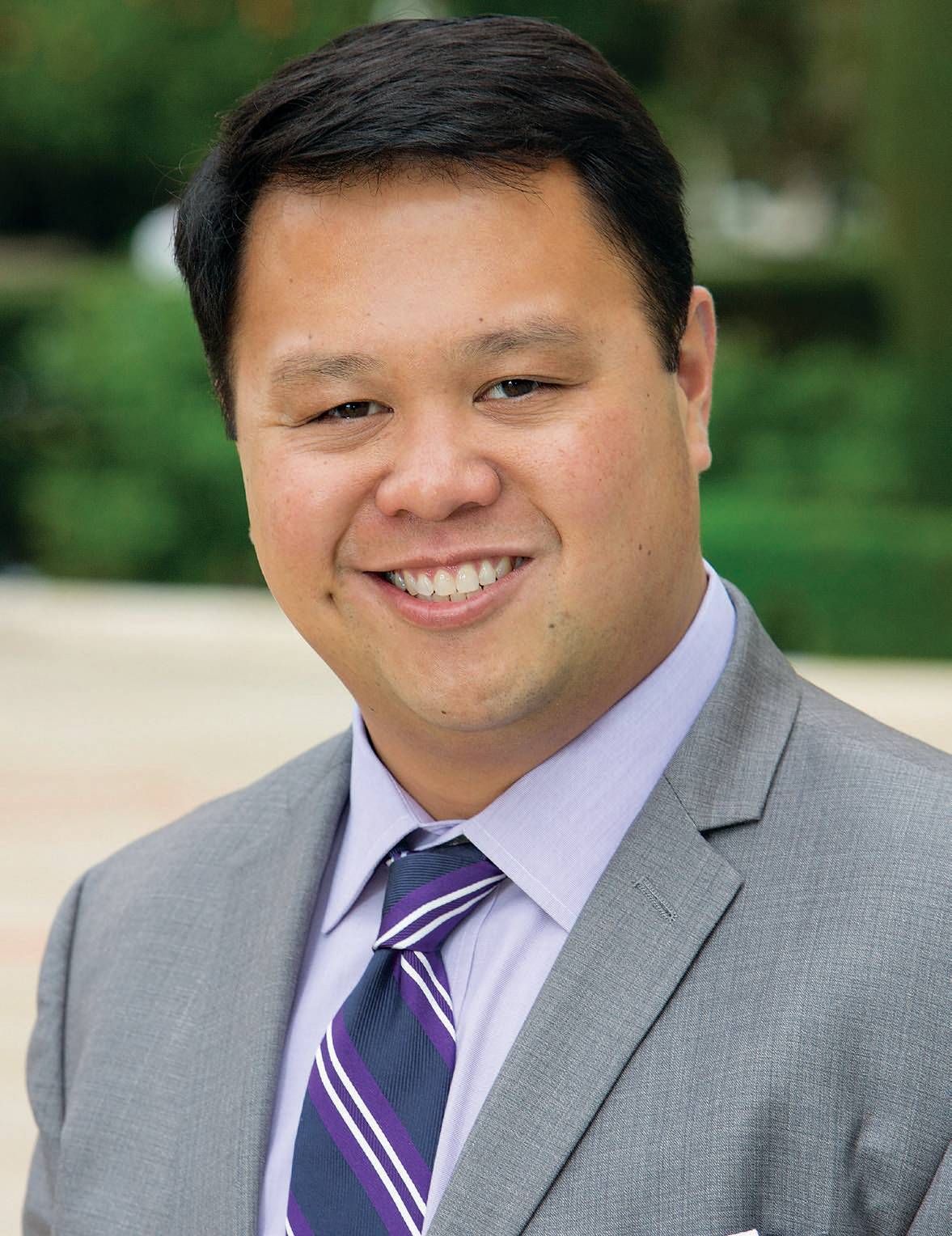
Ed Domingo. Photo courtesy of Empire City Casino
Domingo wasn’t wrong about the area market. “Empire City was, the second that we bought it, literally the largest casino floor in the entire MGM feet and one of the seven largest casinos in the entire country,” says Domingo. Prior to the pandemic, Empire City was certainly riding high.
The casino enjoyed its largest-ever Saturday-night volume just two weeks before it was forced to shutter due to coronavirus restrictions, Domingo notes. The casino remained closed just one day shy of six months, which was “the longest closure of any of the buildings in our feet,” he explains.
“I could not be prouder of the team and the efforts they put out to get us open again.”
— Ed Domingo
To come back, Domingo tackled the issues head on, overseeing HVAC updates, structural changes, overhauls in cleaning protocol, and new training for employees so that the casino could successfully reopen in fall 2020. “It was a ton of work during that intervening period, and I could not be prouder of the team and the efforts they put out to get us open again,” he says.
For Domingo, success now amounts to “seeing our customers come back, getting comfortable, and hearing them say that we are doing things the right way.”
Art Leaders for a New Age
A bold, new generation of innovators has risen to serve as the vanguards of an exciting era in Westchester’s evolving arts-and-culture scene, promoting positive change and making an indelible mark on the county’s zeitgeist.
Ray Wilcox, executive director of Yonkers Arts and a 2020 Business Council of Westchester 40 Under 40 Rising Star, is generating change by hosting workshops, classes, and community events with Yonkers Arts and through the Yonkers Artists Guild, a membership organization that aids hundreds of local creators. Wilcox is also co-creator of community incubator and coworking space The Power Lab.
Like Wilcox, Dr. Tracy Fitzpatrick, director of Purchase College’s Neuberger Museum of Art, is working to advance regional art and artists. Fitzpatrick was appointed to the New York State Board of Regents Advisory Council on Museums in September 2020 and most recently secured several noteworthy acquisitions for the Neuberger.
Since her 2017 appointment, Hudson River Museum director and CEO Masha Turchinsky has been making tremendous headway for her organization and is currently overseeing a $12 million expansion and improvement of the museum’s west wing. During the pandemic, Turchinsky helped foment the Museum From Home program, a digital initiative aimed at promoting the museum’s artwork, classes, resources, and exhibitions.
– Nonprofit –
Spotlight:
Jan Fisher
Executive Director, Nonprofit Westchester
Jan Fisher has long served in the local nonprofit sector, working with Westchester Jewish Community Services — the largest provider of outpatient mental health treatment in the county — for 13 years before consulting for The YWCA of White Plains & Central Westchester.
In July 2019, Fisher took a new position at the helm of an organization that has what she feels is a truly unique calling: “Nonprofit Westchester is the only business membership organization that is solely dedicated to advancing the needs and interests of Westchester’s nonprofit sector, the people we serve, and, most importantly, our workforce.”
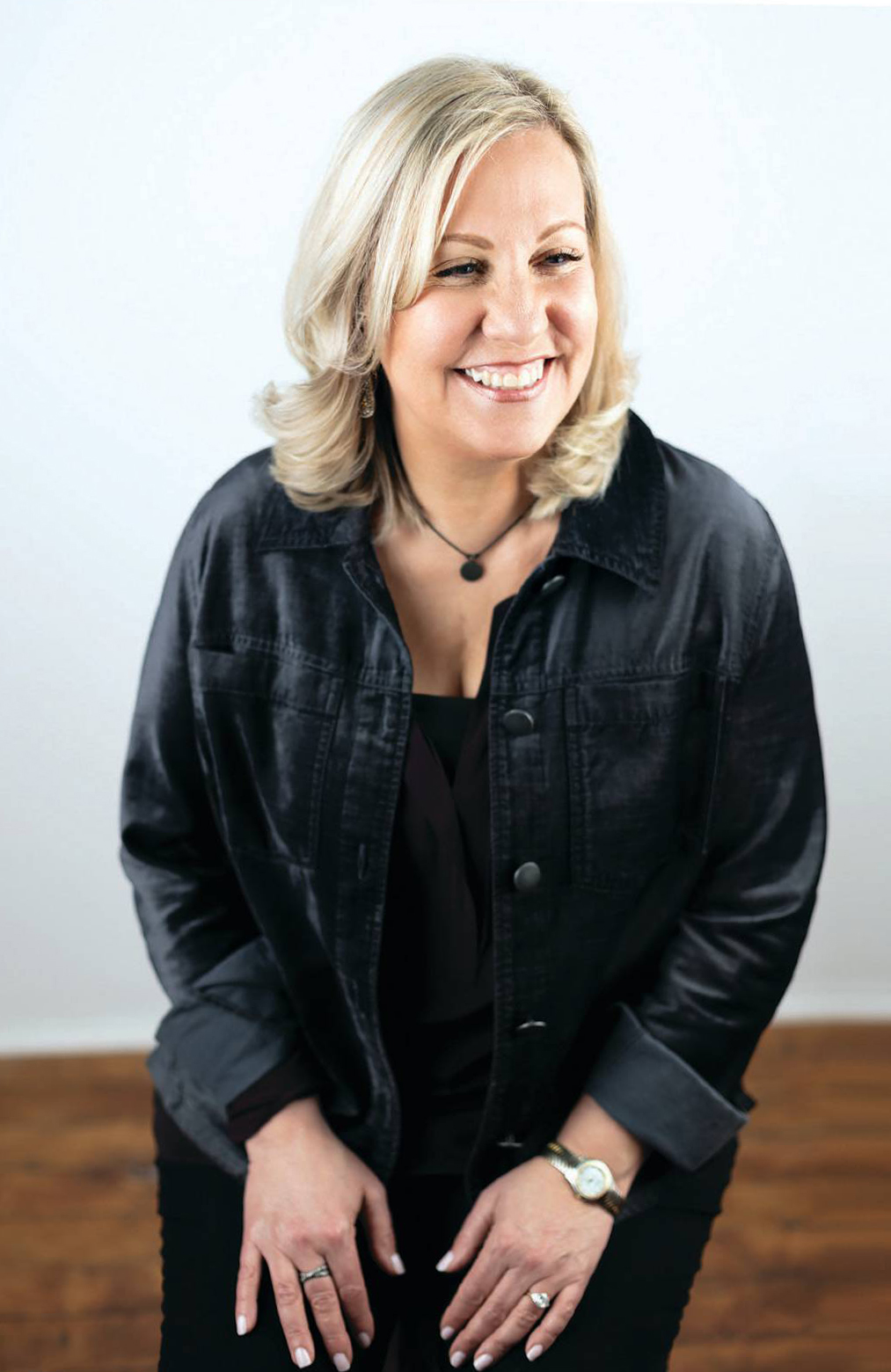
Jan Fisher. Photo by Stefan Radtke
During the pandemic, this mission took on a whole new sense of urgency. “CEOs of my member organizations, my board, and myself were literally working 20 hours a day just figuring out how we were going to make sure people were safe and that our services were delivered,” recalls Fisher.
“Since COVID hit, we have held over 60 workshops on everything from board governance to [securing] grants; the local government came out with a funding opportunity for us, and our business sponsors have more than doubled,” she adds of Nonprofit Westchester’s success in the face of the pandemic.
In recent months, Fisher has worked tirelessly with the YWCA to create a new Center for Racial Equity and served on George Latimer’s Reopening Task Force to help area businesses and nonprofits reemerge and recover from the pandemic.
“COVID reinforced the importance of working together,” reflects Fisher, who adds that “when we all operate as one, our individual organizations will do better. If we are going to accomplish real change, we have to do it together.”
Nonprofit Pioneers
Whether they are providing affordable housing, food, shelter, or sustainable energy solutions to residents, Westchester’s nonprofit leaders are helping heal our region, one selfless act at a time.
As president and CEO of Westhab, the county’s largest nonprofit developer of affordable housing and the biggest provider of housing services for the homeless, Rich Nightingale fights around the clock to aid area residents in need. Over the past year, Nightingale and Westhab have begun finishing touches on a $45 million affordable residential campus, Dayspring Commons, and secured an additional $1 million for an affordable-housing project titled Hudson Hill, both in Yonkers.
Since 2017, Anahaita Kotval has been an engine for change as CEO of White Plains’ Lifting Up Westchester, which is dedicated to providing food, shelter, and support to area residents. Recently, she helped Lifting Up Westchester secure new avenues of funding with the Hudson Gateway Realtor Foundation, as well as substantial grants from the ACME Foundation and United Way.
Joining humanitarians like Kotval is Karen Erren, the newly installed president/CEO of the county’s largest nonprofit hunger-relief organization, Feeding Westchester. When the county’s food-insecurity rate rose by more than 50% during the pandemic, Erren, her staff, and nearly 300 community partners stepped up to find creative ways to feed 275,000 to 300,000 residents each month during the pandemic — twice the normal rate.
Similarly, Nina Orville works hard to facilitate green power initiatives as executive director of the nonprofit consortium Sustainable Westchester. After taking the reins in February, Orville had a major win her very first month on the job, when Yonkers mayor Mike Spano announced that the city would join Westchester Power, Sustainable Westchester’s history-making Community Choice Aggregation program, which uses online auction technology to help municipalities negotiate a fixed-rate clean-energy supply and expand residents’ access to a green electricity grid.


